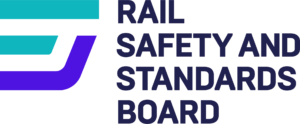post by Sam Smith (2021 cohort)
In Autumn 2022, I spent 3 months completing a placement in the Human Factors team at RSSB (Rail Safety and Standards Board). The placement was remote, but I was invited to come and see the office before I started. The office is in London and has a very modern but welcoming atmosphere. I enjoyed a morning being shown around the office and meeting new colleagues, followed by a couple of briefings to chat about the project and what my contributions would be.
The project that I was working on was looking at the Safety Management Intelligence System (SMIS). SMIS is a system that is designed to be a central data hub for reporting safety incidents within the rail industry. Specifically, we were interested in encouraging Train Operating Companies (TOCs) to engage more actively with SMIS. Initially, given my background in mathematics, I was tasked with delving into the data and uncovering insights that would encourage TOCs to invest more time into inputting all their incidents.
Despite finding some surface-level insights, it was clear that without some guidance from the TOCs themselves, I was searching blindly through the data. I made the decision that it was crucial to speak to TOCs to understand why they weren’t already engaging with SMIS and what their expectations were. I communicated with my team at RSSB, and we set up some meetings with TOCs. Over the next period, I conducted a series of interviews which were useful in understanding the perspectives of the different companies.
Each week my team and I had a catch-up meeting to discuss the work we had done and plan the next steps. It was useful to discuss the findings of my meetings and what other parts of the team had found so that I could improve for the upcoming interviews. Over a period of a month or so, I completed several meetings and made copious notes about the different perspectives. I then collated my findings and created a final presentation I shared with my team at RSSB.
During my placement, I used several different skills that will be useful during my PhD. I conducted some basic data analysis before identifying a fundamental problem with the task briefing. After identifying the problem, I communicated it with my team and proposed a solution that was feasible and sensible. In order to do this, I had to present the problem in a digestible and comprehensive way. I found that this was a daunting task to start with because I hadn’t been involved in an industry project before and I was unsure whether it was my place to suggest changes. Of course, the team was hugely receptive to my suggestions and that gave me confidence moving forward.
Another challenge was conducting interviews with industry professionals because it was my first time doing anything like that. Judging the tone of the interviews was difficult but I improved over the course of the placement. In the end, I felt more confident communicating with stakeholders, which is something that will be immensely helpful in my PhD. Something that I learned during this process was that each stakeholder had very contrasting views, despite their similar standpoint, so it is important to not assume any perspectives.
Overall, the placement was incredibly useful for me to see how industry works and to be exposed to new challenges. While the content of the work wasn’t directly comparable to my PhD, the skills I developed and the challenges I faced will help me complete the PhD. I am very grateful to the Human Factors team at RSSB for their support and guidance throughout the PhD. I would recommend anyone to get involved in projects where they have a good amount of creative license and responsibility as it can really help develop you as a researcher.

